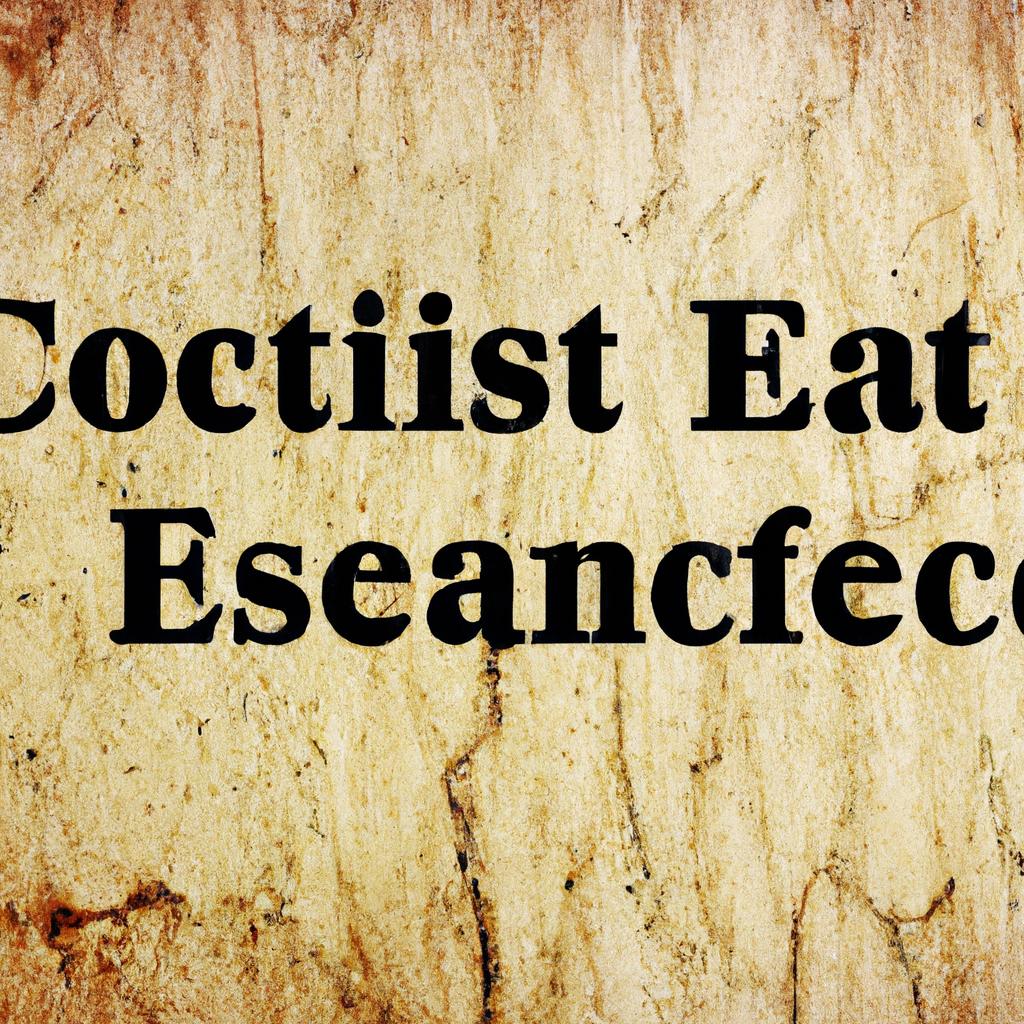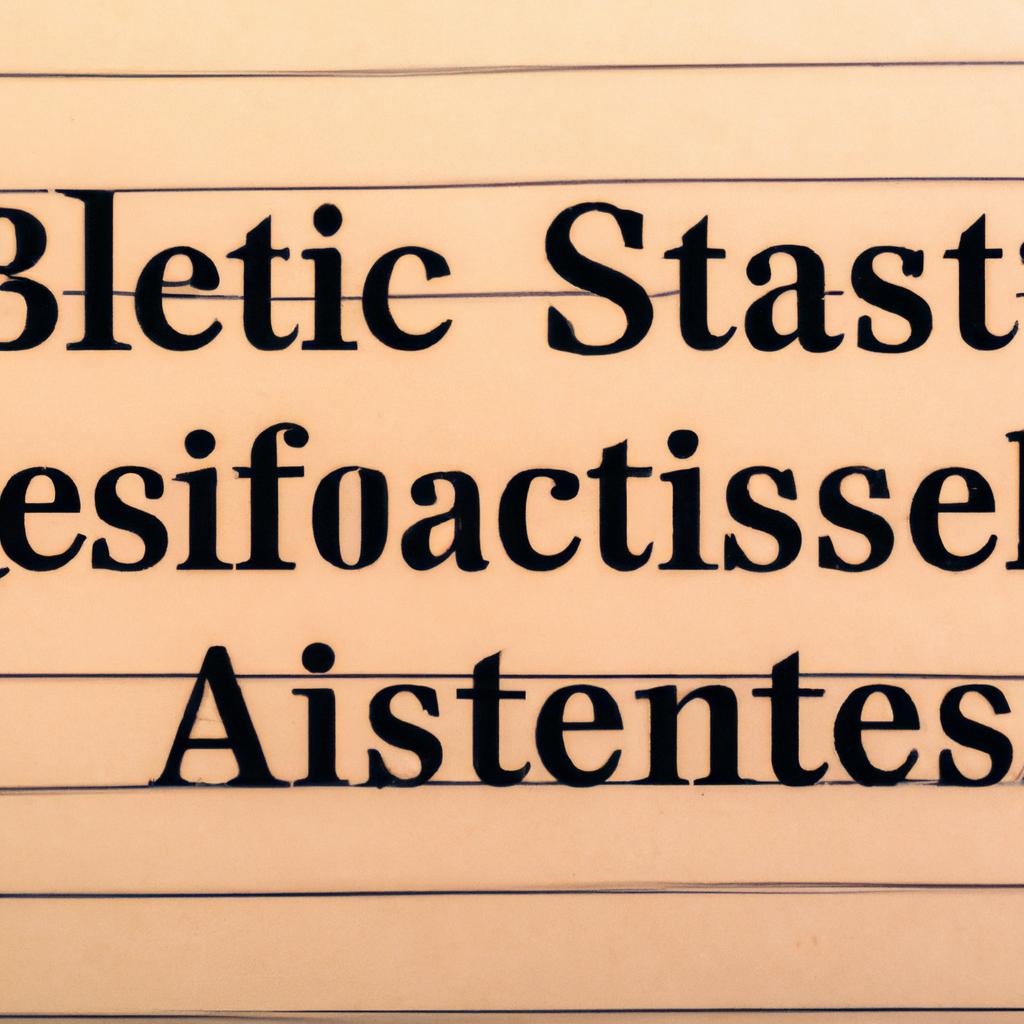Navigating the intricate process of settling an estate can often be daunting, particularly when it comes to determining the associated costs. As seasoned practitioners in estate planning, probate, elder law, Wills, and trusts, the professionals at Morgan Legal Group understand the complexities involved in such matters. In this article, we explore the various factors that can impact the overall cost of settling an estate, shedding light on the considerations that must be taken into account. Understanding the financial implications of estate settlement is crucial for effective planning and ensuring a smooth transition of assets. Join us as we delve into the question: How much does it cost to settle an estate
Understanding the Financial Implications of Estate Settlement
When it comes to settling an estate, it is important to understand the financial implications involved in the process. Estate settlement can be a complex and costly endeavor that requires careful planning and consideration. One of the key factors that can impact the cost of settling an estate is the size and complexity of the estate itself. Larger estates with multiple assets and beneficiaries may require more time and resources to settle, leading to higher fees and expenses.
Other financial considerations to keep in mind when settling an estate include legal fees, court costs, appraisals, taxes, and administrative expenses. It is essential to work with experienced professionals, such as estate planning attorneys and financial advisors, to ensure that the estate settlement process is handled efficiently and effectively. By , individuals can better prepare for the costs involved and make informed decisions throughout the process.

Factors Affecting the Cost of Estate Settlement
When it comes to settling an estate, there are several factors that can affect the overall cost of the process. It is important to understand these factors in order to properly plan and budget for the settlement of an estate. Some of the key factors that can impact the cost of estate settlement include:
- Complexity of the Estate: The more complex the estate is, the more time and resources will be required to settle it. Complex estates may involve multiple properties, business interests, or beneficiaries, all of which can add to the overall cost of settlement.
- Size of the Estate: The size of the estate will also play a significant role in determining the cost of settlement. Larger estates may require more in terms of legal fees, court costs, and other expenses associated with the settlement process.
- Number of Creditors: If the deceased individual had outstanding debts or liabilities, the number of creditors involved can also impact the cost of estate settlement. Resolving these debts can add additional time and expenses to the process.
| Factors Affecting Cost of Estate Settlement | Impact |
|---|---|
| Complexity of the Estate | More complex estates require more time and resources, leading to higher costs. |
| Size of the Estate | Larger estates may incur higher legal fees and court costs. |

Best Practices for Minimizing Costs in Estate Settlement
When settling an estate, it is important to follow best practices to minimize costs and ensure a smooth process. One key strategy is to communicate effectively with all involved parties, including beneficiaries, heirs, creditors, and professionals such as attorneys and accountants. By keeping everyone informed and working together towards common goals, misunderstandings and disputes can be avoided, saving both time and money.
Another important practice is to thoroughly review and organize all financial documents and assets of the decedent. This includes creating an inventory of assets, debts, and liabilities, as well as identifying any potential tax implications. By organizing this information upfront, estate administrators can avoid costly delays and errors throughout the settlement process, ultimately saving money for the estate.

Seeking Professional Guidance in Managing Estate Settlement Finances
When it comes to managing estate settlement finances, seeking professional guidance is paramount. The complexities involved in the process can be overwhelming, and having an experienced estate planning attorney on your side can help navigate through the intricate details with ease. From evaluating the assets and liabilities of the estate to determining the distribution of assets to beneficiaries, a knowledgeable attorney can provide invaluable assistance every step of the way.
At Morgan Legal Group, we understand the importance of efficient estate settlement and the impact it can have on your loved ones. Our team of skilled attorneys has years of experience in handling estate matters, including probate, Wills, trusts, and elder law. With our expertise, we can help streamline the estate settlement process, ensuring that everything is handled in a timely and cost-effective manner. Contact us today to learn more about how we can assist you in managing your estate settlement finances.
Q&A
Q: How much does it typically cost to settle an estate?
A: The cost of settling an estate can vary greatly depending on a number of factors, such as the size and complexity of the estate, the location, and the services required. In general, it can range from a few thousand dollars to tens of thousands of dollars.
Q: What are some common expenses involved in settling an estate?
A: Common expenses in settling an estate include attorney fees, court costs, executor fees, appraisal fees, and taxes. Other potential costs include fees for transferring assets, paying off debts, and distributing inheritances.
Q: Are there ways to minimize the costs of settling an estate?
A: Yes, there are several ways to minimize costs when settling an estate. This may include creating a comprehensive estate plan, keeping good records, and communicating openly with beneficiaries. It is also important to work with qualified professionals who can help navigate the process efficiently.
Q: Can estate settlement costs be covered by the assets of the estate?
A: Yes, in most cases, the costs of settling an estate can be paid for from the assets of the estate itself. However, it is important to budget carefully and consider all expenses before distributing inheritances to beneficiaries.
Q: Are there any tax implications to consider when settling an estate?
A: Yes, there are potential tax implications when settling an estate, including estate taxes, inheritance taxes, and income taxes. Working with a tax professional can help ensure that all tax obligations are met and that the estate is settled in a tax-efficient manner.
In Conclusion
In conclusion, the cost of settling an estate can vary greatly depending on various factors such as the size of the estate, the complexity of the assets, and the specific circumstances of the beneficiaries. While the process can be expensive and time-consuming, proper planning and guidance from legal and financial professionals can help mitigate these costs. It is important to carefully consider all aspects of settling an estate in order to ensure a smooth and efficient distribution of assets. Remember, every estate is unique, so it is advisable to seek professional advice to navigate the complexities of the process.
 Are you wondering about the costs involved in settling an estate? You are not alone. The process of settling an estate can be complex and intimidating, especially when it comes to the financial aspect. In this article, we will break down the general costs associated with settling an estate and provide you with valuable information to help you navigate the process smoothly.
Are you wondering about the costs involved in settling an estate? You are not alone. The process of settling an estate can be complex and intimidating, especially when it comes to the financial aspect. In this article, we will break down the general costs associated with settling an estate and provide you with valuable information to help you navigate the process smoothly.
What is an estate settlement?
Before we dive into the costs, let’s first understand what estate settlement is. Estate settlement refers to the handling and distribution of a deceased person’s assets and debts. This can include paying off any outstanding debts, distributing assets to beneficiaries, and handling tax and legal matters. The executor, also known as the personal representative, is responsible for overseeing this process.
What are the general costs involved?
The costs involved in settling an estate can vary depending on various factors such as the size of the estate, the complexity of the assets and debts, and the location. Generally, the costs involved can be categorized into three main categories: administrative, legal, and tax-related costs.
1. Administrative Costs
These costs cover the day-to-day tasks involved in managing and settling an estate. They can include:
– Executor fees: The executor is entitled to a fee for their services, which is usually a percentage of the estate’s total value. In some cases, the executor may waive this fee if they are a family member or close friend.
– Probate fees: If the estate needs to go through probate, there will be probate fees involved. These fees are usually based on the estate’s total value and can vary from state to state.
– Accounting and bookkeeping fees: The executor will need to keep track of all financial transactions related to the estate, and these services may come at a cost.
– Property appraisal fees: If the estate includes valuable assets such as real estate, jewelry, or artwork, a professional appraisal may be needed.
2. Legal Costs
Legal costs can be a significant expense in estate settlement. Depending on the complexity of the estate, you may need to hire a lawyer to assist with the process. Some of the legal costs involved may include:
– Legal fees: If you need to hire a lawyer, their fees can range from a few hundred to thousands of dollars, depending on the complexity of the estate.
– Court fees: If the estate needs to go through probate, there will be court fees involved.
– Mediation or arbitration fees: In some cases, disputes may arise during the estate settlement process. In such cases, mediation or arbitration may be necessary, which will incur additional costs.
– Estate and income tax preparation fees: The executor is responsible for filing the deceased person’s final tax return, as well as any estate or income taxes owed. Hiring a tax professional to assist with this process can be costly.
3. Tax-related Costs
Tax-related costs are often a significant expense in settling an estate. Some of the tax-related costs involved may include:
– Estate taxes: The estate may be subject to federal and state estate taxes, depending on its value. The federal estate tax exemption for 2021 is $11.7 million, but this may vary in the future.
– Inheritance taxes: Depending on the state, there may be inheritance taxes on assets received by beneficiaries.
– Income taxes: If the estate earns income, there will be income taxes to be paid, and the executor will need to file tax returns.
Ways to reduce costs
Now that we have covered the general costs involved in settling an estate, you may be wondering if there are any ways to reduce these expenses. Here are a few tips to help you save costs during the estate settlement process:
– Choose an executor from within the family or a close friend who is willing to waive their executor fee.
– Keep detailed records and receipts to avoid disputes and potential legal fees.
– Explore alternatives to court-supervised probate, such as small estate procedures or transfer-on-death (TOD) deeds, if possible.
– Consider using online resources or software to assist with bookkeeping and financial management.
– Discuss potential tax-saving strategies with a tax professional, such as charitable donations, to reduce the estate’s tax liability.
Benefits and practical tips
The process of settling an estate can be overwhelming, but being prepared and informed can make it more manageable. Here are some practical tips to help you navigate the process:
– Plan ahead: Having a comprehensive estate plan in place can reduce the costs and stress of settling an estate. Consider creating a will, setting up trusts, and naming beneficiaries for your assets.
– Communicate with your loved ones: Make sure your family and loved ones are aware of your wishes and have a basic understanding of the estate settlement process. This can help avoid disputes and misunderstandings in the future.
– Seek professional assistance: Don’t hesitate to seek professional help from a lawyer, accountant, or financial advisor. They can guide you through the process and provide valuable advice to help you make informed decisions.
Case Studies and Firsthand Experiences
Every estate settlement process is unique and can have its own set of challenges and costs. Here are some real-life examples of estate settlement costs:
– In a simple estate where the assets were easily transferable, the total cost was around $10,000, including legal and administrative fees.
– In a more complex estate with multiple properties and assets, the total cost was over $50,000, including legal, administrative, and tax-related fees.
– In a case where the deceased had a comprehensive estate plan in place, the total cost was significantly lower, as the executor was able to handle most tasks with minimal professional help.
Conclusion
In conclusion, settling an estate can involve various costs, including administrative, legal, and tax-related expenses. Understanding these costs and planning ahead can help you navigate the process more smoothly and possibly reduce some of the expenses. Remember to seek professional help when needed and communicate with your loved ones to avoid potential disputes and misunderstandings. With proper planning and guidance, the estate settlement process can be less daunting and more manageable.

